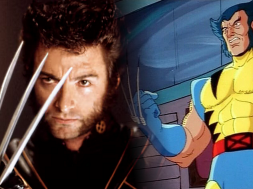
Beyond Refrigerators I
Once upon a time, in a land far far away…
Or rather, a while back in the real world, the people began to notice a disturbing pattern popping up in fictional stories. Female characters kept being killed off or tortured in gratuitously shocking ways, called “fridging” after one rather infamous example. Not just another lazy method of plot advancement or fiction’s usual tendency towards melodrama, in most instances this fate was solely and specifically directed at women. What was striking was not just how frequently women were tortured or murdered, but how little attention was given to what the traumatic impact would be on the character herself. The woman was written not as a subject but as an object, and her inner life presumed to be as irrelevant as that of a toaster. The author instead would explore the consequences of her suffering only as it impacted upon the nearest male character, as it added to his suffering and/ or motivated the next phase of his journey.
Across the multiple mediums of contemporary fiction, it is expected that an author will create male characters with something of the complexity of actual human beings. Female characters, on the other hand, are too-often written as robotic pseudo-humans that go into standby mode once left to their own devices. This is not new; this is a problem as old as fiction itself, from back when women were treated as subhuman and their lives considered beneath educated interest. Society has moved on though, right?
Well, no. Somehow, in the 21st century, certain segments of society still have difficulty with the idea that fiction may be written starring a female character. These are the people who just don’t agree that a woman is an active, capable subject and that a female lived experience is worthy of attention. The folks who fail to grasp that a woman does not evaporate when the male observer leaves the room, but carries on thinking, feeling and breathing at all times. The persons who cannot accept that a woman will have her own ideas and her own agenda and her own preferences and is the protagonist of her own story. The groups of individuals who struggle with the notion that a woman is a who and not a what.
The humans who doubt that women are human.
It’s disappointing when you consider that most of these people are the neighbours, the colleagues, or the loved ones of women. That these are people who – despite knowing women, despite seeing women in their daily lives, despite speaking the same language as women, sharing a pillow with women, living in the same spaces as women and witnessing the impact of the violence and degradation and threats that women are forced to navigate every day of their lives – not only remain ignorant of the female experience, but actively oppose ever finding out.
The sad truth is we all act as though some people matter and some do not. The false binary of male vs. female is just one example of society’s compulsion to divide humanity into “us” vs. “them”. There is also unequal treatment of anyone who is on the “wrong side” of racism, ableism, homophobia, transphobia, class division, gender essentialism, colonialism, sizeism, ageism, xenophobia, etc. The fridging of non-normative characters does not occur in a vacuum. It both reflects and affects how society at large values and recognises women and other marginalised identities. This series of articles will focus on cisgender sexism as one simplistic example of societal oppression, but the urgency of the other oppressive forces should never be underestimated.
If someone, somewhere, would have you believe that huge swathes of the human population are incapable of political or institutional responsibility, are unable to produce great thought or great literature, are unworthy of leading roles in our cultural narratives, are remarkable or exceptional if ever successful, are biologically destined to follow the leader, are morally incompetent, are less than normal, less than human, less-than, then the question to ask is this: who benefits?
Why, the people who get to be politically or institutionally responsible; who get to have their grand thoughts and Literature taken seriously; who get to be the heroes, even anti-heroes, in the stories we consume; who get to be the leader; who are given the chance to make moral choices; who get to call themselves normal; who get to be human. The people lucky enough to be born right at the intersection of current social norms are cast as the Default, against which everyone else must play the Other.
The most obvious example of the Default is that of men, as they are quantifiably, demonstrably privileged by the patriarchal capitalist system in operation throughout most of the world today, but it’s not a uniquely masculine position. If the Cylons descended tomorrow and through sheer numbers took over all political, economic and religious institutions, banned humans from voting or learning to read or participating in political, economic and religious spheres while also dismissing or destroying all human literary, medical, academic, or philosophical achievements for thousands of years then we’d bloody well call it Cylonsplaining, right? But there is no alien species to play the Other, no extraterrestrial “them” so that all of humanity can be “us”; the role must fall to some within our midst, and thus we are divided.
The system is not broken; the system depends on the subjugation of the many to benefit the interests of the few. The oppression and injustice wielded against the Other is a feature, not a flaw. We are fed the same tired old stories we’ve heard a thousand times before, justifying cruelty, normalising violence, reducing complicated people to an individual hiccup in an otherwise benevolent system that mostly works for most of the people most of the time so take the blue pill, Neo.
Resisting those stories is hard work, for it takes our valuable time and energy away from our other pursuits. In fact, whether for money or not, applying our time and energy to achieving a particular goal is exactly that: work. Similarly, we may spend our time and energy paying attention, maybe to a favourite tv show or sport. Attention is work; work is attention. Since we have a finite amount of both time and energy, where we choose to direct it shapes who we are. What we think about – what we dwell on – shows where we live, as it affects the stories we are exposed to and act on as real.
It’s a given in today’s society that stories have power. Our justice system tests our ability to spin facts into compelling narratives. Advertising influences what we eat, what we buy, and how we think. Propaganda takes us to war, and keeps us there. We are narrative creatures, attempting to capture reality, its raw shape pinned loosely by our clumsy, word-bound languages.
Imagination gives us the ability to recognise cause and effect, empathise with others, create an animated sponge in square pants, etc. When decision-making, we must search for the most useful option, but we need to imagine, experience or be exposed to less-than-useful options in order to tell the difference. Consciousness demands context, and stories can provide that.
Sadly, human beings also have the capacity to accept any context as “normal”. We may switch off our empathy at will just by telling ourselves the proper stories that rationalise the suffering of others. It is a coping mechanism, but one with a steep cost, for it means that nothing is serious until we take it seriously. Exposure to narrative diversity helps prepare us for human diversity, but we cannot pay attention to what we cannot see.
Demanding representation of the Other in the stories that we consume; this is far from a trivial matter. Seizing the limelight as the main character assumes you are worthy of our attention. It is a role we rarely allow the Other, because it runs the risk of exposing the dangerous truth:
Everybody is human. Everybody matters.















